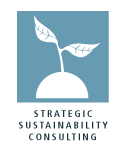This November I spent a week in
1. Multinational corporations (MNCs) and local business are held to two different standards.
One of the most interesting take-aways from my trip to
Lesson: The social and environmental impacts of globalization will hit big companies first, and multinational companies will need to be prepared to go above and beyond local "best practices" when introducing new factories in
2. Corporate social responsibility is too new to have much traction.
My workshop was officially titled "EHS and Strategic Sustainability Planning: Creating Competitive Company Value as A Good Corporate Citizen" and included topics like:
§ Sustainability in a Chinese Context
§ Wal-Mart and Sustainability: Implications for
§ Communicating Sustainability Performance
The first day opened with a session on environment, health, and safety (EHS)—where I talked primarily about the importance of having the "three Ps": policy, programs, performance. The next session was called "Beyond EHS" and talked about the emerging CSR issues that companies will need to address in order to keep up with larger sustainability trends. This session included things like diversity, human rights, unionization, community relations, and stakeholder engagement.
During this session, I was met by a lot of blank stares, and even some giggles. Because as far as the EHS has come in
Lesson: MNCs need to pay more attention to "soft" CSR issues, and make sure that adequate resources are devoted to issues beyond environment, health, and safety. This is ESPECIALLY true for companies that have global standards for CSR—because it's only a matter of time until they get caught operating with different standards.
3. Culture shifts are the key obstacle to long-term sustainability.
The final lesson I took away from my trip is that—while there are many obstacles to implementing a broader sustainability agenda in Chinese operations—cultural context is the most challenging. For MNCs moving into
Lesson: While global CSR standards are great, companies need to be aware of what a huge impact culture plays on the ability of a facility to "buy-in" to sustainability. New operations, in particular, need to make sure that enough time and energy is spent educating employees about the "why" behind CSR programs and performance goals.
.gif)